
The drill is targeting Pyongyang, but it will hardly act as a deterrent on the DPRK's nuclear attempt, Huang said, adding that the nuclear plan offers Washington an excuse to further increase its military presence in East Asia.
The DPRK threatened to conduct a third nuclear test after the UN Security Council passed a resolution to expand sanctions against Pyongyang for its rocket launch on Dec 12.
According to a Yonhap report on Monday, Pyongyang denounced the latest UN sanctions as a "grave obstacle" to its efforts to rebuild its economy, saying such sanctions won't work and will only harden its resolve to further strengthen its self-defense capabilities.
Pyongyang is turning to nuclear weapons because it is confronted with difficulties in developing its economy under sanctions, and this mentality is very dangerous, said Huang.
The DPRK's Korean Central News Agency reported on Sunday that Pyongyang's top leader, Kim Jong-un, had chaired a high-level meeting with military officials to discuss a "great turn" in strengthening military capability and issued "important" guidelines to top officials.
Recent satellite imagery has confirmed activity at the northeastern nuclear test site in the DPRK, which covered the entrance to a test tunnel in an attempt to inhibit external monitoring, according to AFP.
Yonhap citied officials in Seoul as saying that the DPRK has completed all preparations and can detonate a nuclear device at any time.
Shi Yuanhua, director of Center for Korean Studies under the Institute of International Studies of Fudan University in Shanghai, said that the ROK's launch of its first rocket, Naro, last week provoked the DPRK to some degree and caused Pyongyang's resistance.
US Secretary of State John Kerry talked with his ROK counterpart on Monday, agreeing on the need to ensure that Pyongyang understands that it will face significant consequences from the international community if it continues its provocative behavior, The Associated Press reported.

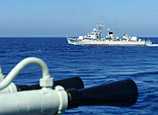
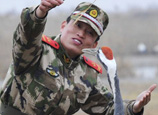

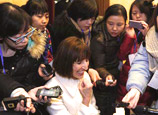
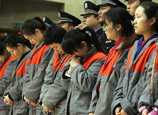
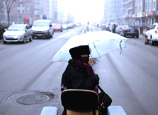










 High-profile divorce saga ends
High-profile divorce saga ends


![]()
